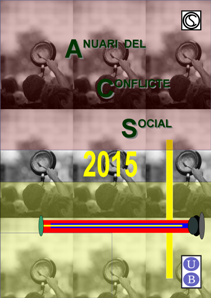6. Social Conflict in the Hato Verde II Community: A Situational Analysis based on Community Research
Keywords:
social conflict, Venezuelan legal order, situation analysis, legal hermeneuticsAbstract
This work represents a research aimed to reflect on the use of situation analysis and community research in the analysis of the social conflicts existing in the Hato Verde II community. Based on our research, we developed the social and legal dimensions of community practice through the application of participatory action research methods and the techniques and instruments of participant observation, in-depth interviews and surveys. We also used the method of situation analysis for the analysis of conflicts; moreover, we resorted to the method of legal hermeneutics for the interpretation of the legal texts used in this study. In this interactive research, community social conflicts and their causal factors were revealed, based on the recognition of the social actors present in the conflicts, the relations of force they exert, and the analysis of the legal, political, social and cultural components of the different situations. Actions to resolve conflict situations in, with and from the community were carried out in workshops concerning the use of alternative means of conflict resolution. Our findings focus on earning awareness of the existence in the community of both interpersonal and intergroup apparent conflicts, coexisting with functional and dysfunctional conflicts caused by personal reasons derived from communication, and from structural or environmental factors. Finally, after executing the above-mentioned actions, it is now evident that the people have greater trust in the resolution of conflicts by way of neighborhood dialogue based on negotiation and with the mediation of the Common Council.
Downloads
Published
How to Cite
Issue
Section
License
AUTHORS RETAIN COPYRIGHT. CREATIVE COMMONS
The authors who publish in this journal agree to the following terms:
- The authors retain the copyright and grant the journal the right of first publication of the work, which will be disseminated following the Creative Commons Attribution license.
- Authors are free to establish additional independent contractual agreements for the non-exclusive distribution of the version of the work published in the journal (such as publication in an institutional or thematic repository, their personal website or a book), provided have your initial publication in this journal recognized.
- Texts will be published under a Creative Commons Attribution License that allows others to share the work, provided they include an acknowledgement of the work’s authorship, its initial publication in this journal and the terms of the license.
- Self-archiving of pre-print and post-print versions is allowed.
Privacy statement
The email addresses and names entered in this publication will be used exclusively for the purposes declared and will not be used for any other urposes or made available to third parties.







